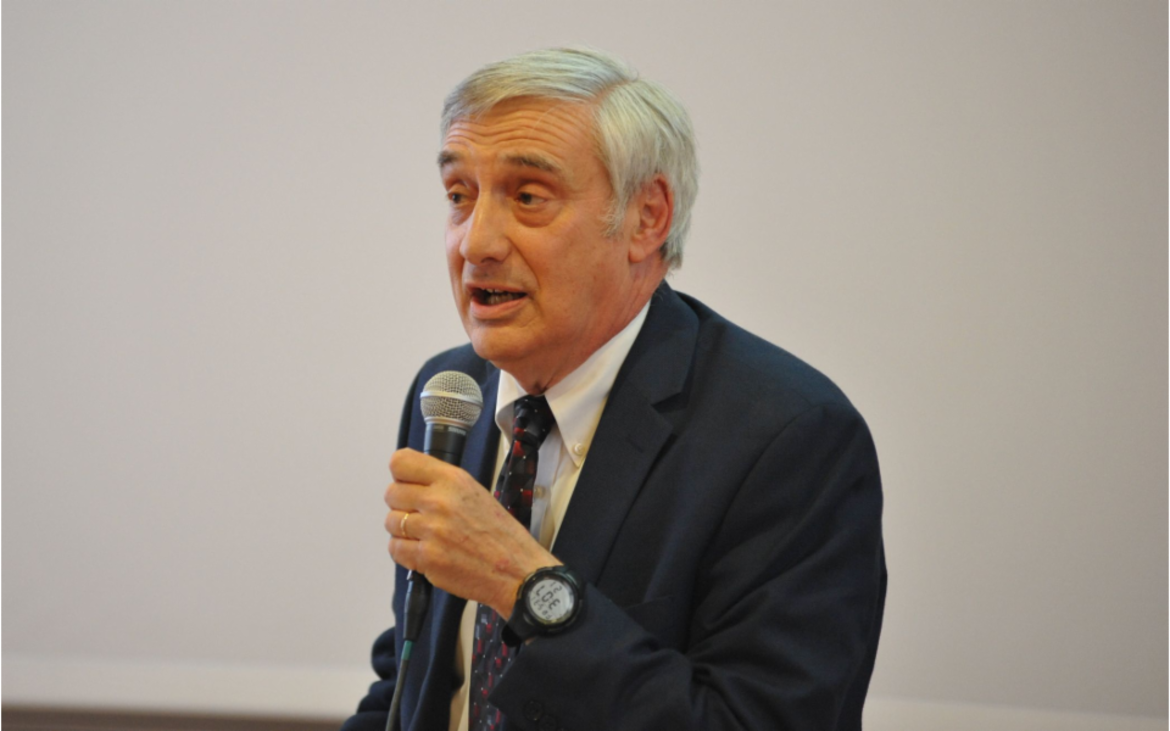
Joel Mokyr is an optimist. Using examples from history and facts to support his argument, he claims that there are no signs of economic stagnation in the near future. He guided a packed audience through his lecture by using a historical timeline that focused on demographic factors, institutional actors, and technological innovations.
Before the industrial revolution, Mokyr explained that economic stagnation was the societal norm. There was demographic negative feedback, in that economic growth basically created the conditions of its own undoing. Second, he highlighted aggressive institutional behavior- specifically pointing to of governments invading other territories and forcefully acquiring resources from each other. Thirdly, Mokyr emphasized the lack of technological knowledge present at the time: people could invent and do things, but had no concept of the science behind what they were doing.
He continued by explaining the changes of economic growth caused by the industrial revolution. He specifically mentioned a sudden burst of scientific knowledge and a change of insituitional behavior- as states began 'robbing' other less developed nations instead of each other, setting the stage for colonialism.
While some theorists are pessimistic about the future of economic growth, Mokyr remains hopeful. In terms of demographics, he points out that an ageing populaton does not necessarily mean that economic systems will fail.
In terms of enviornmental implications, Mokyr also is hopeful for the future. Although the world has long relied on fossil fuels and other non-renewable energy sources, which are bound to run out, Mokyr is hopeful that the advanced technolgical developments in society will be sufficient grounds for people to find newer, alternative energy sources. He says we are already on the right track, citing examples like LED lights. "What we need is not less innovation, but a different kind," he said.
On institutional change, he claims that it is much safer for smaller, rich countries such as Singapore or Luxembourg today than 200 years ago. Although the standard in the international community is much more unified than in the past, Mokyr says it still isn't guaranteed to continue, as something like nuclear blackmail is still a possibility.
To Mokyr, internal issues, such as corruption, are the most deadly threats to institutions. He classifies states into three categories:
Successful states where there is no corruption; States where there is corruption but their economies are still dynamic; States where corruption is so bad that their economies can't thrive
The goal in the near future is to get countries in the final category to transition to at least the second. While some may point to having these states join transnational organizations like the EU, this is still not guaranteed to rid them entirely of internal issues.
Technological and scientific progress was Mokyr's focal point in the discussion. Given that society has modernized so substantially over the past two centuries, some people think that we have reached the theoretical cieling of innovation. However, Mokyr points out that 200 years ago, people could not have ever fathomed some of the innovations we see today. That being said, Mokyr thinks we are in the same situation and the only direction is towards more growth, at one point saying, "We haven't seen anything yet."
Mokyr emphaszies that technology and science have a strong relationship and each needs the other for further development. Together, they have always co-evolved and will always do so. For example, in a scientific field like chemistry, there was no such thing as computational chemistry before computers and lasers have evolved to affect multiple scientific fields. Mokyr emphaszied, "We have always played God [in terms of creating things], we've just gotten better at it."








